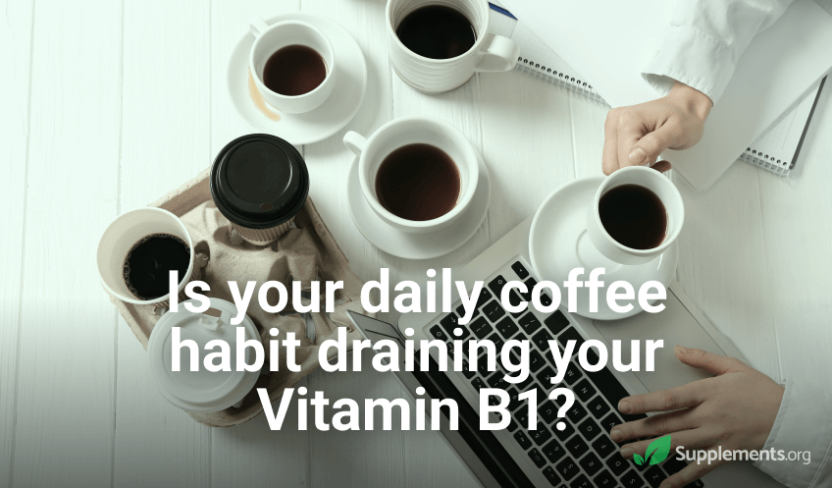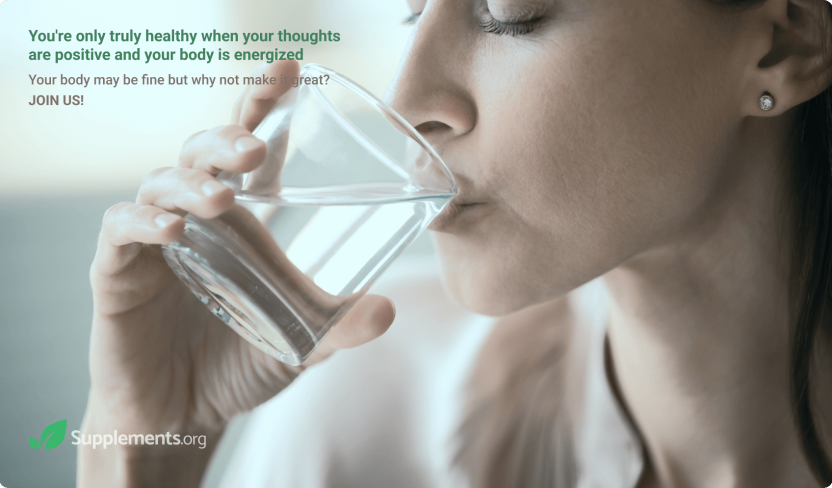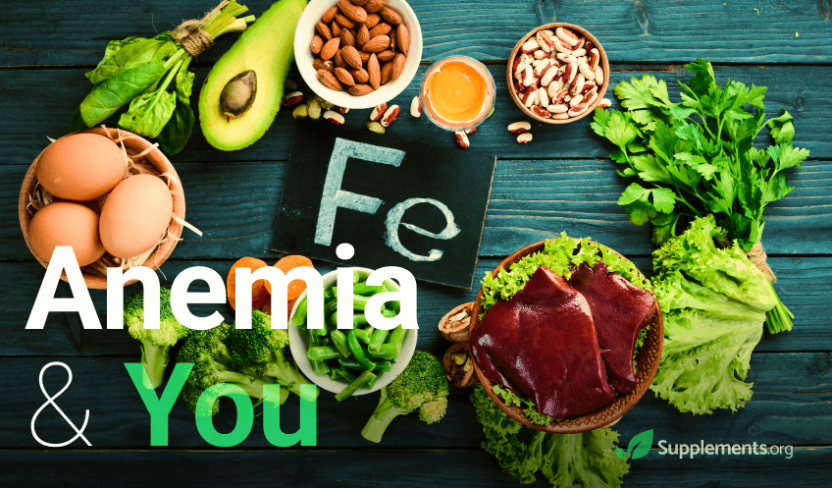How Vitamin B1 Boosts Your Best Life.

In the symphony of life, Vitamin B1 plays a crucial tune, harmonizing your vitality and well-being. Embrace the power of this essential nutrient, and let it be your steadfast companion on the journey to your best life. With each dose, you're not just taking a supplement; you're composing a masterpiece of health and happiness. So, go ahead, unlock the potential of Vitamin B1, and let your best life's music play on!
Is your daily coffee habit draining your Vitamin B1?
Many of us can't imagine starting our day without that comforting cup of coffee. The aroma, the warmth, the gentle wake-up call – it's almost ritualistic. But have you ever considered the nutritional implications of your daily caffeine fix? It might surprise you to learn that individuals addicted to coffee, tea, or even alcohol may be at an increased risk of thiamine (vitamin B1) deficiency.
Our body's balance of vitamins is delicate and can be easily swayed by our habits, even those that seem harmless or routine. Now, before you panic and think of tossing your espresso machine, it's essential to understand why this happens. Every substance we consume, be it coffee, tea, or alcohol, affects our metabolism and nutrient absorption. These beverages, especially when consumed excessively, can interfere with the way our bodies process and utilize essential vitamins, including thiamine.
You might be wondering, why is Vitamin B1 so crucial? Thiamine plays a pivotal role in our body's energy production, particularly in carbohydrate and fat metabolism. Simply put, it's a key player in transforming the food we eat into usable energy. So, while your coffee might be giving you that instant jolt of alertness, over-relying on it could mean you're compromising on long-term energy derived from optimal vitamin B1 levels.
However, it's not just the coffee aficionados who should be wary. If you're frequently reaching out for tea or enjoying those evening wine sessions a bit too often, you might want to reconsider. Being mindful of our consumption habits is the first step to ensuring our bodies are getting the nutrients they need to function at their best.
How do our daily routines shake up our vitamin balance?
We're creatures of habit. From the moment we wake up, each of us has a unique routine we follow, sometimes almost mechanically. While these routines bring a semblance of order to our lives, few of us pause to think about how they might be affecting our vitamin balance. But it's time we do.
Let's take pregnancy, for instance. It's a transformative experience, both emotionally and physically. The body goes through numerous changes to support the new life growing inside. These changes can significantly affect the balance of vitamins, with increased demands for nutrients like vitamin B1. Likewise, situations like chronic insomnia or frequent illnesses can deplete our reserves, making us more vulnerable to deficiencies.
The effects of our weight on vitamin balance are another point of interest. Carrying excess weight puts additional stress on the body's metabolic processes. As we learned earlier, thiamine is a champion in carbohydrate and fat metabolism. So, when our body works overtime due to excess weight, it may utilize vitamin B1 more rapidly, leading to a potential deficiency.
Lastly, our elders often say that with age comes wisdom. However, age also brings about a change in the way our bodies process and utilize vitamins. The elderly, particularly those with asthenic conditions, may find it challenging to maintain optimal vitamin B1 levels, making them more susceptible to its deficiency.
The crux of the matter is life's various stages and conditions have a profound impact on our nutritional needs. Recognizing these shifts and adjusting our habits and diets accordingly can make a world of difference.
Why is Vitamin B1 the unsung hero of energy and metabolism?

Everyone loves an unsung hero, the one who works tirelessly behind the scenes, making everything run smoothly. In the world of vitamins, B1 or thiamine fits this bill perfectly. But why exactly?
Picture this: You sit down for a delicious meal, maybe some pasta or a sandwich. You enjoy every bite, feeling satisfied afterward. But what happens next? Your body gets to work! It's like a bustling factory, breaking down the food to extract energy. At the heart of this intricate process is thiamine. It plays a star role in getting glucose from food, that quick energy source our cells love. But it doesn't stop there. From this glucose, our bodies derive other essential substances, like ribose. So, no vitamin B1, no energy. And without energy, our body's intricate biochemical dances go haywire. It's like trying to run your car without fuel!
Vitamin B1 doesn't just stop at giving us energy. It's also pivotal in fat metabolism. When we think about metabolism, we often think about how quickly we burn calories or lose weight. But at its core, metabolism is about converting the food we eat into energy and other vital substances our bodies need. Thiamine ensures this process runs smoothly, like a maestro conducting a symphony.
So, the next time you're feeling pumped and full of energy after a meal, take a moment to appreciate thiamine. While it might not always be in the limelight, it's working hard to keep you energized and feeling great.
Breaking it down: How our body unlocks energy with B1.
We often hear about the importance of a balanced diet, but understanding the mechanics of how our body turns food into energy can be a bit of a puzzle. Here's where Vitamin B1, or thiamine, steps in as a key piece of the jigsaw.
When we eat, our body begins the complex process of digestion, breaking down the food into simpler forms. Carbohydrates, for instance, are transformed into glucose, our body's primary energy source. But for glucose to really do its job, it needs a helper, and that's thiamine.
Thiamine acts like a gatekeeper, ensuring that glucose is efficiently used to produce energy. But remember, our body is a wonderland of interconnected processes. From glucose, other essential compounds are formed, such as ribose, which plays a pivotal role in various biological reactions.
Now, you might be thinking, "Alright, I get it. Thiamine is important. But what happens if I'm running low?" Well, that's where things can get tricky. Imagine trying to light a room with a flickering bulb; it's not very effective, right? Similarly, without sufficient B1, the energy production process isn't as efficient. Our body starts to struggle, leading to fatigue and other related issues.
So, the next time you enjoy a hearty meal, picture the wonderful dance of nutrients inside you, with thiamine leading the charge, ensuring you're energized and ready to tackle the world!
Your brain on Vitamin B1: Unlocking peak cognitive power.
Did you know your brain is one of the most energy-hungry organs in your body? Even when you're just daydreaming or binge-watching your favorite show, it's working overtime, processing information, controlling bodily functions, and making countless decisions. Now, imagine fueling this supercomputer with low-grade energy. Not ideal, right? This is where thiamine comes into play.
Thiamine is not just about powering muscles or helping with digestion; it has a special relationship with our brains. It optimizes cognitive activity, ensuring our thinking is sharp, our memory is on point, and our focus remains unwavering. It’s like giving your brain the premium fuel it deserves.
Thiamine does more than just supercharge our cognitive abilities. It acts as a shield, protecting our brain neurons. These neurons are the communication channels of our brain, and any damage to them can have severe consequences for our cognitive health.
But here's the kicker: the brain is quite selfish when it comes to thiamine. Even if our body's thiamine levels are dropping, the brain will be the last organ to give it up. So, if you ever notice a decrease in cognitive functions, it's a red flag. It means the situation might be worse than you think, and it's high time to check on your B1 levels.
To put it simply, thiamine and your brain are best buddies. They look out for each other, ensuring you remain sharp, focused, and always on top of your game.
Warning signs: Do you know the symptoms of Vitamin B1 deficiency?

We've talked a lot about the wonders of thiamine and its vital role in our body. But how can you tell if you're not getting enough of it? Vitamin B1 deficiency doesn't carry a sign announcing its presence; instead, it reveals itself through subtle hints that can easily be mistaken for other issues.
First up, if you find yourself feeling unusually fatigued or lethargic, even after a full night's rest, it might not just be the Monday blues. A lack of thiamine means your body isn't efficiently converting food into energy, leading to that constant feeling of being drained.
Brain fog is another telltale sign. We all have those days when words elude us, or we forget why we walked into a room. But if these moments are becoming more frequent, it could be a signal that your brain isn't getting the thiamine it desperately needs.
For those who've made the gym their second home, a sudden decrease in endurance or muscle weakness can be perplexing. Before you start doubting your fitness regime, consider checking your Vitamin B1 levels.
And then there are more overt symptoms: issues with digestion, unexplained weight loss, or even cardiovascular problems. While these can be attributed to various causes, a thiamine deficiency could be a potential culprit.
The key takeaway? Listen to your body. It has a unique way of communicating its needs. If you sense something is off, it might be time to check on your Vitamin B1 intake and ensure you're not running on empty.
Getting to the root: Diseases and conditions that cry out for Vitamin B1.
Just like a plant withers without adequate water, certain conditions and diseases make our bodies cry out for some thiamine love. Recognizing these can be a game-changer in managing and even alleviating some health issues.
Take Beriberi for example. It's a serious condition resulting from severe thiamine deficiency. Manifesting in two forms - wet and dry - Beriberi affects either the cardiovascular system or the nervous system, leading to complications like heart failure or nerve damage.
Another alarming condition linked to B1 deficiency is Wernicke-Korsakoff syndrome. Often associated with chronic alcohol abuse, it's a brain disorder resulting from a lack of thiamine. Symptoms can range from vision changes to severe memory impairment.
But it's not just these severe conditions that should be on our radar. Simple, everyday issues, like chronic fatigue, irritability, and even muscle weakness, can be our body's SOS signal for more Vitamin B1.
Then there are the high-risk groups. Pregnant women, the elderly, and even those battling frequent illnesses might have heightened thiamine needs. And it's not just about the presence of a disease. Our lifestyles, too, play a role. If your weekends are filled with alcohol or if caffeine runs in your veins instead of blood, it might be time to rethink and replenish your Vitamin B1 stores.
In essence, while Vitamin B1 might not be the talk of the town, understanding its role and ensuring we're not deficient can be a significant step toward holistic well-being.
The inside scoop: How Thiamine is absorbed and why you need more than just B1.
When we pop a vitamin pill or munch on a thiamine-rich meal, it doesn’t instantly become a part of us. There's a whole backstage process that most of us are unaware of. So, how exactly does our body embrace this vital nutrient?
Enter the duodenum – the unsung hero of the small intestine. This is where the magic of thiamine absorption happens. But the process isn't as straightforward as "eat, absorb, repeat." Thiamine needs to be transformed into its active avatar - thiamine pyrophosphate - before our body can fully harness its benefits.
Now, here's the plot twist: this transformation isn't a solo act. It's more of a group performance, with magnesium playing a crucial supporting role. Without enough magnesium, or if we're dealing with hypomagnesemia (a fancy term for low magnesium levels), our body's ability to absorb thiamine diminishes. So, even if you're loading up on B1, without magnesium, it's like trying to drive a car without the key.
And there's more to the supporting cast. Vitamin C, the ever-popular immunity booster, also steps in. To ensure thiamine is effectively absorbed and used, supplementing with vitamin C can be a smart move.
So, the next time you're considering boosting your Vitamin B1 intake, remember it's not just about the star of the show. The supporting acts, like magnesium and vitamin C, are equally essential to ensure the performance goes off without a hitch.
Behind the scenes: How our habits impact our Vitamin B1 levels.
We all have them – those little habits we indulge in, thinking they're harmless. Maybe it's that third cup of coffee, the nightly wine ritual, or even the habit of burning the midnight oil. But have you ever paused to consider how these daily routines might be impacting your vitamin balance, especially Vitamin B1?
Consider this: If you're someone who can't function without multiple cups of coffee or tea throughout the day, there's a higher likelihood of your Vitamin B1 levels taking a hit. Caffeine, while being a great pick-me-up, can interfere with thiamine absorption.
And it's not just the caffeine addicts. For those who enjoy unwinding with a glass of wine or a cold beer, alcohol can be a sneaky villain in the Vitamin B1 story. Regular alcohol consumption can reduce thiamine absorption and increase its excretion, double trouble for your B1 levels!
Sleepless nights? Chronic insomnia doesn't just leave you with dark circles; it can also mess with your vitamin balance. The stress and altered metabolic processes can deplete your thiamine levels faster than you'd think.
Other groups that need to be vigilant include expecting moms (pregnancy ups the ante for B1 needs), those trying to shed some pounds (excess weight can alter nutrient absorption), and our lovely elderly population.
The takeaway? While our daily habits and conditions might seem unrelated to vitamins, they play a vital role in determining our nutrient balance. Sometimes, being aware and making minor tweaks can go a long way in ensuring our bodies are well-nourished and happy!
Caution with diuretic water pills: Keeping B1 in check.
Water pills, or diuretics, are quite the rage these days, especially among those aiming to shed some water weight quickly. They work by increasing urine output, helping rid the body of excess salt and water. Sounds simple, right? But did you ever pause to wonder what else might be getting flushed away?
The body is like a well-tuned orchestra, with each vitamin and mineral playing its part. When we use diuretics, we don’t just shed water; we could potentially be losing essential nutrients, with Vitamin B1 being one of them.
Thiamine is water-soluble, which means it doesn’t stick around in the body for long. When you’re frequently using diuretics, the risk of washing away a substantial chunk of your B1 intake becomes real. It's like trying to fill a bucket with water while there's a hole at the bottom; you can keep pouring, but you'll always be playing catch-up.
This doesn't mean you should ditch diuretics altogether, especially if they're prescribed by your healthcare professional. It's about being informed and proactive. If diuretics are part of your regimen, consider getting your Vitamin B1 levels checked regularly or discuss supplementation with your doctor.
In essence, while diuretics can serve a purpose, it’s essential to see the bigger picture and ensure you're not inadvertently robbing your body of the nutrients it needs to thrive.
CONCLUSIONS.
Vitamins often seem like those puzzle pieces you think you can do without until you're left staring at an incomplete picture. Among them, Vitamin B1 or thiamine might not always be the star of the show, but as we've journeyed through this article, it's evident that it plays a critical role in our health and well-being.
Whether it's fueling our brain for optimal cognitive functions, ensuring we're energetic and upbeat, or even playing peacekeeper when our habits might be doing us a disservice, thiamine wears many hats. And it's not a solo act. The synergy of magnesium and vitamin C is essential to ensure thiamine is effectively absorbed and put to good use.
However, in today's fast-paced world, with diuretics, excessive caffeine, and alcohol often being regular players in our lives, the chances of a thiamine deficiency loom large. Recognizing the symptoms, understanding the high-risk groups, and knowing the diseases associated can be our first line of defense.
In the grand mosaic of health, thiamine might just be one tile. But it's a tile that can influence the entire picture. Taking steps to ensure adequate Vitamin B1 intake, being aware of the factors that might deplete it, and fostering habits that promote its absorption can set us on a path of holistic health and vitality.
Cheers to a thiamine-rich life and the myriad benefits it brings along!
References
- Fattal-Valevski A. Thiamine (Vitamin B1). Journal of Evidence-Based Complementary & Alternative Medicine. 2011;16(1):12-20. doi:10.1177/1533210110392941
Peters, E. A. The biochemical lesion in vitamin B1 deficiency. Application of modern biochemical analysis in its diagnosis. Lancet 1936 Vol.230 pp.1161-1165 - WILLIAMS RD, MASON HL, WILDER RM, SMITH BF. OBSERVATIONS ON INDUCED THIAMINE (VITAMIN B1) DEFICIENCY IN MAN. Arch Intern Med (Chic). 1940;66(4):785–799. doi:10.1001/archinte.1940.00190160002001
- R. R. Williams STRUCTURE OF VITAMIN B1 Journal of the American Chemical Society 1936 58 (6), 1063-1064 DOI: 10.1021/ja01297a515
- R. R. Williams and J. K. Cline Journal of the American Chemical Society SYNTHESIS OF VITAMIN B1 1936 58 (8), 1504-1505 DOI: 10.1021/ja01299a505
















